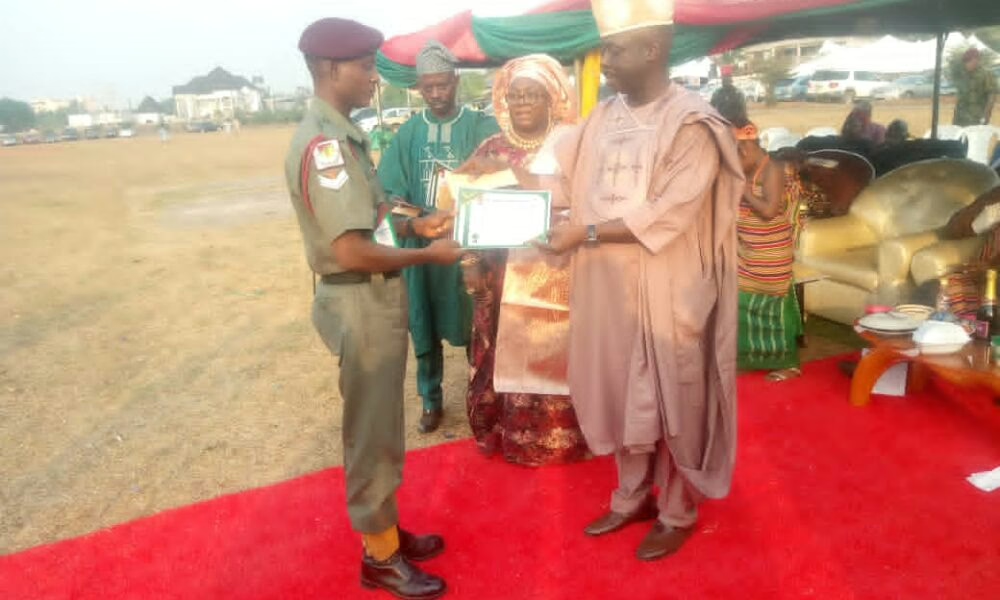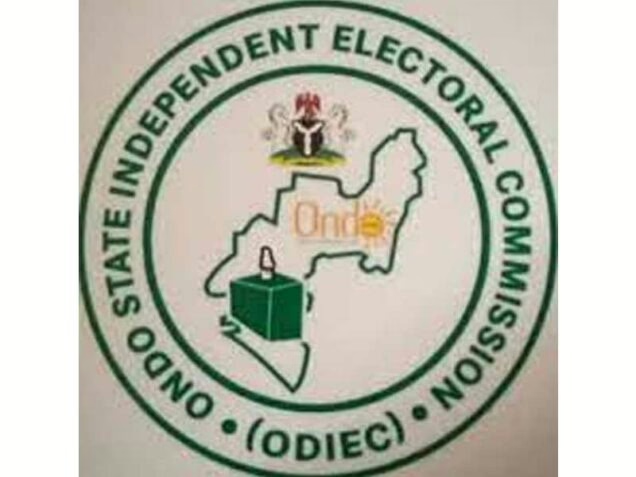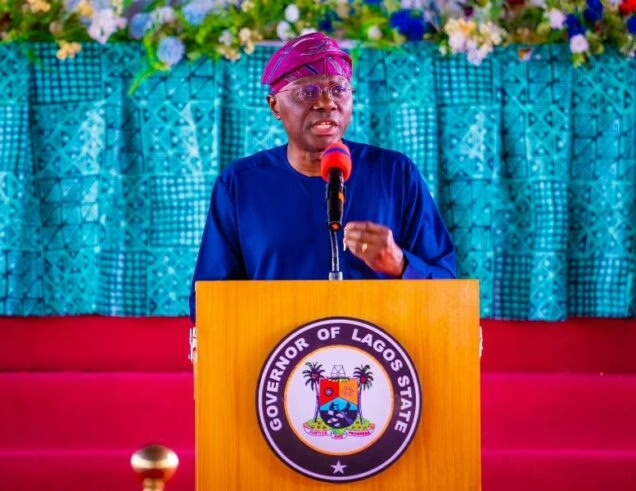Today, Sunday, the 19th of May, 2024 marks the 93rd year of the birth of Alhaji Aminu Dantata, a Kano-based businessman and philanthropist who is a scion of the late Alhaji Alhassan Dantata, famously known across Northern Nigeria as Alhassan Dogo, owing to his height.
Aminu Dantata is the founder and co-founder of several companies across various sectors of the economy, famous among which are Express Petroleum & Gas Company Ltd, Jaiz Bank, etc. In 1978, he was a member of the National Movement, an organisation that later transformed to the National Party of Nigeria (NPN).
Though the 15th child in a family of seventeen children, Alhaji Aminu nonetheless acquired both Islamic and Western education, owing to a number of factors, key among which were his late father’s wide international sophistication, as well as the stupendous wealth of his family. From 1938 to 1945, he was educated at Dala Primary School and then finished his education through home studies in a private school built by his father in 1949. After his studies, he joined the family business, Alhassan Dantata & Sons in 1948 as a produce buyer and also got married. In 1955, he became the Sokoto district manager of the business. The year 1955 was also when his father died and the shares in the business were subsequently distributed to the children. In 1958, Dantata became the deputy managing director of the business while his brother Ahmadu, was the MD. When Ahmadu died in 1960, Dantata became the head of the business.
Over the years, Alhaji Aminu expanded the business holdings and his activities into various sectors of the Nigerian economic sphere. By the beginning of the 1960s, Dantata had a construction firm that received patronage from the newly independent government in Nigeria, his firm was given a contract to build part of the Nigeria College of Aviation (NCAT), Zaria, then known as School of Aviation. In 1961, he was among three other businessmen as part of the 23-member economic mission group, the first world-wide mission sent by an independent government in Nigeria. In 1964, he was among the pioneer board members of the Nigerian Industrial Development Bank (NIDB), now Bank of Industry (BoI). In 1968, Dantata was appointed kano State commissioner for Economic Development, Trade and Industry under the administration of Audu Bako, he was in the position until 1973.
During the indigenisation period of the 1970s, the Dantata group bought shares and held significant holdings in Mentholatum, SCOA, Funtua Cotton Seed Crushing Company and Raleigh Industries.
And so, in packaging our maiden edition of the Northern Business Icons, a special periodic compendium through which we intend to profile eminent citizens of the North who have made significant positive impacts on the region’s business landscape, we thought that no personality fits that bill than Alhaji Aminu Dantata.
Happy reading!
In the last two years, Alhaji (Dr.) Aminu Alhassan Dantata has seized various opportunities provided by either a political visit or media engagement to reflect on himself, the evening of his life, and his perception of how society is shaping out.
A media shy person, the billionaire, who has been in business for more than 70 years, spanning trading, construction, property, banking, manufacturing, oil and gas, is not exactly given to publicity, as he has severally turned down requests for press interviews until very recently.
According to Alhaji Aminu, he brushes aside requests for interviews because neither his father (Alhaji Alhassan Dantata) nor his elder brother (Alhaji Ahmadu Dantata) did that in their lifetime; and so, it would not start with him.
But he is open to chats, and his guests could extract whatever he says and publish.
In one of his reflections while hosting the then Vice Presidential Candidate of the All Progressives Congress (APC), Kashim Shettima, and his entourage in his mansion located in Koki Quarters of the commercial city of Kano, the revered billionaire made a statement that many considered as ‘deeper than it sounds’.
Addressing vice presidential hopeful, Dantata said he no longer enjoyed life and was only waiting for when he would leave the face of the earth. The statement got Nigerians talking.
The elder statesman and highly influential figure, who clocks 93 years today, however, added that he believed he had done everything he needed to do and had travelled to every state in the federation. He recalled that many of those he grew up with have passed.
alhaji aminu dantata and his late wife, rabi dantata
“Sadly, of all the people I know, I hardly can call out 10 that are still alive. Among my entire family of brothers and sisters, I’m the only one still alive. And my friends whom we grew up together, I don’t think there are more than three of us. As I am right now, I am just waiting for my time. I no longer enjoy life anymore. I hope I depart this world in good faith”, he said.
Notwithstanding the current stage of his life, one thing that is strikingly clear about the sage is that his memory is still intact, as he recounts events from the 1950s and beyond with ease.
As far back as 1956, Dantata said he had done the rounds, visited every major country in the world, including Australia, India, China, Brazil, Yugoslavia, Russia and many others. By 1961, he had finished his round of all the Arab countries and Israel.
By that time, he recalled, countries like Saudi Arabia and others could not boast of as much wealth as Nigeria. There were only few buildings of note in both Makkah and Madinah.
“Anytime we travelled to Saudi Arabia for pilgrimage in the early 1950s and 1960s, the Saudi authorities would do everything possible to delay our return journey because they wanted us to spend more days in their country.
“The logic here was that the longer we stayed the more we would spend, and that would add value to their income.
“They usually withheld our passports and other travel documents for a few more days after the completion of pilgrimage”, he said.
From his various public reflections, one of the developments that makes Dantata sad is how western economies have grown and how their countries developed from African resources.
“It is our resources they took to their own countries and developed them. They transported our farm produce, mineral resources and other natural resources to their own countries and developed them.
“When they colonised us, they ensured they placed their manpower above ours and prevented our people from taking appropriate actions that would have developed our countries.
“Take Kano for instance, before the coming of the white men, the people of Kano had a strong business and religious relationship with some Arab countries like Morocco, Tunisia and Sudan.
“So, when the white men came, they found us practicing Islam as our religion and engaged in many crafts and other businesses as ways of earning our living.
“It is not because I am from Kano, but at that time, in the whole of Nigeria, Kano was the most civilised city in the country, courtesy of our interactions with the Arabs”, he said.
Dantata does not consider himself a politician, but he once had a brush with politics. He was a one-time member of the House of Assembly in Kaduna during the First Republic.
After the government was overthrown by the military, he returned to Kano and the late Audu Bako, governor of Kano during the General Yakubu Gowon military administration, appointed him a commissioner in his cabinet.
He spoke proudly of the “laudable projects” they oversaw during their time in government, but after that, he felt he had had enough.
In the run-up to the Second Republic, which produced the late Alhaji Shehu Shagari as president, Dantata recalled being approached by some notable people to contest for the position of president.
Other people, like the late Malam Aminu Kano, also appealed to him to contest for the governorship of Kano State. “My reason for rejecting these offers was simple.
“As a businessman with huge responsibilities, I believed Allah had already chosen a career for me, through which I would play my role in the progress of my state, country and humanity in general.
“So, there was no point for me to join politics”, he said.
As someone who has seen several generations and how times and people have changed, Alhaji Aminu Dantata is concerned by the morality level in today’s society.
According to the nonagenarian, the culture of respecting the elders by the young is fast eroding, and unless this is addressed, it could lead the younger generation to serious problems in the future.
In their youth, he said, they respected the elderly, irrespective of where they came from.
“I stand to be corrected; things are not moving as expected in our society because of the decline in honesty and sincerity among the Nigerian youth.
“And if things continue the way they are now, only God knows what the future of the unborn generation would be.
“The situation is getting worse on a daily basis,” he said.
The erosion of honesty bothers the billionaire as he had fond memories of his travels in the 1950s when he was a manager in Sokoto and had to travel to all the towns and villages in the province.
“Anytime I encountered such problems (vehicle breakdown) I would just inform the traditional ruler in the area that my car had developed a problem and I had money inside it.
“And the traditional ruler would assign someone to guard the car pending when a mechanic would come and repair it.
“I can confidently tell you that even if that car would spend three days or more, not a dime would miss from the money in it.
“The situation is not the same now,” he said.
Alhaji Aminu is concerned that the level of decadence and decline in moral values has reached a level that would leave those trying to fix things confused as they would not know where to start from.
With a special focus on the North, Dantata said a holistic approach of a combination of Islamic and western education should be considered.
Fighting decadence is a responsibility of all, especially the government, Islamic scholars, traditional rulers, the business class and community leaders, who he advised to come on board to salvage the country before it is too late.
“It has to start from our homes, schools, places of work and markets.
“It is quite unfortunate that good virtues are gradually going extinct, especially among our youth.
“And until we address this, we will never produce qualitative future leaders, and we will never get it right in our quest to cleanse our mess.
“Media organisations have a greater role to play in restoring good virtues among the younger generation in the country”, he emphasised.
One of the things that bother the tycoon is the collapse of industries, not only in Kano State, but in northern Nigeria as a whole.
He lamented the closure of hundreds of industries between Kano and Kaduna, which has caused hundreds of job losses.
He attributed the situation to the nonchalance of business owners.
He confirmed that he had shares in virtually all the industries that operated in the country, and every company that has been operating in Kano or Kaduna over the last 20 years.
While most people his age would be thinking of resting on their laurels, Dantata said he had designs to reopen Fine Text Textile Company in Kaduna State, where he owned 87 per cent shares.
He also has plans to invest in farming.
He said he was planning to cultivate his farm in Kura area, which covers over 5,000 hectares.
He is considering planting rice and maize to boost production of the crops in the state, in order to feed and provide jobs for many people.











